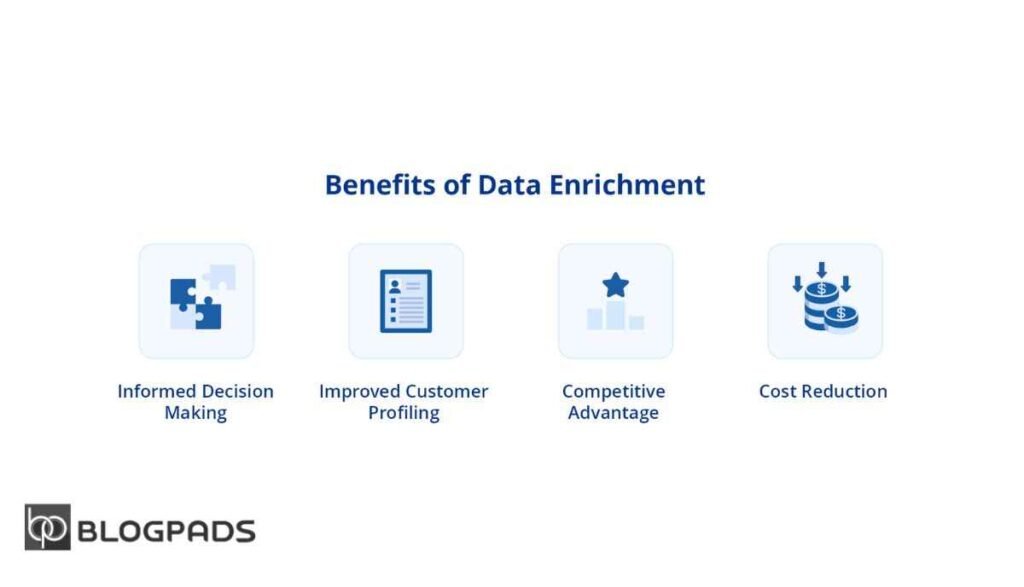1. Understanding Data Integrity
What is data integrity?
Elevating Data Integrity: The Case for Data Validation and Enrichment Data integrity refers to the accuracy, consistency, and reliability of data throughout its lifecycle. Think of it as ensuring your car runs smoothly from the moment it’s built to its final ride. Data integrity ensures that information isn’t altered, lost, or corrupted.
2. What Is Data Validation?
The foundation of accurate data
Data validation is like proofreading an important document. It involves checking if the data entered meets certain standards, such as being in the correct format or falling within a specific range.
Types of data validation
- Format Validation: Ensures data matches a predefined format, e.g., phone numbers or email addresses.
- Range Validation: Checks if values fall within a permitted range, like age or salary.
- Consistency Checks: Verifies that related data aligns logically.
3. The Role of Data Enrichment
Adding value to existing data
While validation ensures data accuracy, enrichment makes it more valuable by adding missing details or enhancing the information. For instance, appending geographic coordinates to a customer’s address can help businesses optimize delivery routes.
How does enrichment work?
Data enrichment uses external sources to fill gaps or improve quality. For example:
- Appending demographic details for better marketing segmentation.
- Enhancing contact lists with updated email or phone numbers.
4. Why Does Data Integrity Matter?
Impact on decision-making
Imagine building a house on shaky ground. That’s what poor data integrity feels like—it compromises the foundation of decisions. Accurate data ensures businesses operate efficiently, avoids costly mistakes, and enhances customer trust.
5. Key Benefits of Data Validation and Enrichment
Enhanced Decision-Making
Organizations make better choices when their data is accurate and enriched with relevant insights.
Increased Operational Efficiency
Validated data reduces errors and minimizes the need for manual corrections.
Improved Customer Experience
Clean and enriched data ensures personalized and timely interactions with customers.
6. Common Challenges in Maintaining Data Integrity
Human Errors
Mistakes in data entry are a leading cause of poor data integrity.
Data Silos
When data is stored in isolated systems, maintaining consistency becomes a challenge.
Rapid Data Growth
The sheer volume of data generated daily makes validation and enrichment a daunting task.
7. Tools for Data Validation and Enrichment
Today’s technology offers several tools to simplify the process, such as:
- Excel and Google Sheets for basic validation tasks.
- Specialized software like Informatica and Talend for advanced needs.
AI and Machine Learning
These technologies are now being used to automate and improve the accuracy of validation and enrichment processes. Elevating Data Integrity: The Case for Data Validation and Enrichment
8. Real-World Applications
E-commerce relies on validated customer addresses for smooth delivery.
Healthcare uses enriched patient data for accurate diagnosis and treatment.
Finance ensures validated transaction details for fraud prevention.
9. Steps to Improve Data Integrity
Establish Clear Data Standards
Define rules for data collection, entry, and storage.
Regular Audits
Perform routine checks to identify and rectify errors.
Invest in Training
Educate employees on the importance of maintaining data quality.
10. The Future of Data Integrity
As technologies like blockchain and AI evolve, they promise to revolutionize data validation and enrichment. Blockchain ensures tamper-proof data, while AI continues to make processes smarter and faster.
Conclusion
Data integrity is no longer optional—it’s a necessity. By leveraging data validation and enrichment, individuals and organizations can unlock the full potential of their information. Think of it as maintaining a healthy diet for your data, ensuring it’s both accurate and enriched for optimal performance.
FAQs
1. What is the difference between data validation and data enrichment?
Data validation checks for accuracy and correctness, while data enrichment adds value to existing data by filling gaps or enhancing details.
2. Why is data integrity important?
Data integrity ensures reliability, consistency, and accuracy, which are crucial for informed decision-making and operational efficiency.
3. How can businesses benefit from data enrichment?
Data enrichment allows businesses to better understand their customers, optimize operations, and improve marketing strategies by providing richer insights.
4. What are some examples of data validation in everyday life?
Examples include verifying email addresses during sign-ups, ensuring numeric values in financial entries, and checking formats for identification numbers.
5. Can poor data integrity lead to legal issues?
Yes, especially in industries like finance and healthcare, where inaccurate data can result in compliance violations, fines, or legal disputes.

